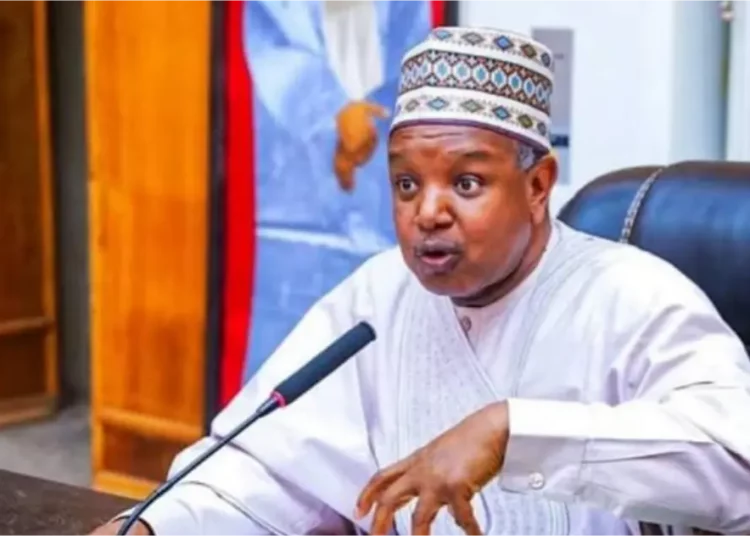Minister of Budget and Economic Planning Senator Abubakar Bagudu has said Nigeria needs to attract more resources than it has to fund its development agenda.
For this to happen, the nation must develop a sound financial system with integrity, he said.
He spoke at the management retreat of the Nigerian Financial Intelligence Unit in Abuja on Monday.
“Our Agenda 2050, a statement of our national aspiration, requires that we invest at least 100 billion dollars annually to achieve a GDP per capita of $33,000 or more by 2050,” he said, adding, “We are nowhere near that.”
He said the current financing level is smaller than that but explained that President Bola Tinubu’s administration had undertaken bold and courageous economic reforms to boost its revenue.
“However, we still need to be where we should be; we are not near the kind of flows we expect,” the minister noted.
To buttress his point, he cited the $20 billion federal budget size, which he said was too small compared with other countries like Brazil and Indonesia, which have similar population sizes and have $750 billion and $210 billion budgets, respectively.
The minister explained that Nigeria needs a sound financial system to attract domestic and foreign investments to finance its development plan.
“The plan is to use private sector or capital market money to fund the plan. Because of that, we need confidence, integrity, and soundness in our financial system,” he pointed out, “The rating agencies could be more generous with us, maybe not only with us but with all countries.”
He stated that this was the role of the NFIU, which he said had performed creditably but needed to communicate its activities more effectively for the public to acknowledge.
The minister said, “Our credit rating should improve. We have taken measures similar to those in countries that have achieved significant increases in credit ratings. We have established and committed institutions, particularly the NFIU, and should benefit from them.
“Communication matters, so we reinforce and punish wrongdoing while drawing attention to our great work to enhance the integrity and soundness of our financial assistance.”





